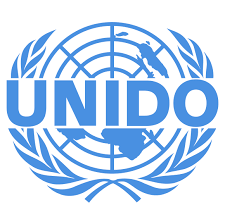UNIDO, Zambia sign Programme for Country Partnership Eighth Forum on ISID
Marking the end of the programming phase initiated in 2019, the launch of the PCP will heighten the long-standing partnership between UNIDO and Zambia.

LI Yong, Director General of the United Nations Industrial Development Organization (UNIDO), and Chipoka Mulenga, Zambia's Minister of Commerce, Trade and Industry, have signed a five-year Programme for Country Partnership (PCP) on the occasion of the Eighth Forum on Inclusive and Sustainable Industrial Development (ISID) during the 19th session of the UNIDO General Conference.
Under the leadership of the Government of Zambia, the PCP will strengthen existing and forge new partnerships for the inclusive and sustainable industrial development of Zambia, with the main objective of contributing to a diversified, competitive, inclusive and sustainable industrial economy. As part of its commitment to the programme, the Government of Zambia has pledged more than US$20m as co-financing for the implementation of the PCP objectives, which is expected to leverage additional resources from development partners. Notably, the PCP and its pertinent initiatives have already received support from the Governments of China, Sweden, Finland and Japan, as well as the European Union, among other relevant partners.
Zambia's Minister of Commerce, Trade and Industry, Mulenga, said, “The PCP comes at a timely moment to accelerate Zambia’s development goals and enhance the country’s industrial productivity by developing human capital and bringing value addition in different sectors.”. He added, “Industrial sectors play an important role in the economic transformation agenda to foster greater inclusion and poverty reduction.”
Marking the end of the programming phase initiated in 2019, the launch of the PCP will heighten the long-standing partnership between UNIDO and Zambia.
“The finalization of the programming phase marks an important milestone and I commend the Government of Zambia for its vision and leadership throughout the process,” said Li. He added that “UNIDO, through the PCP, will continue to support Zambia, as we progress to the next stage of our collaboration.”
Based on the results of the PCP Industrial Diagnostic Study conducted by UNIDO and in line with the Government’s priorities, three focus areas were identified:
(i) Fostering manufacturing industries and value addition on primary commodities;
(ii) Industrial skills development;
(iii) Improving the policy environment.
Women and youth empowerment and COVID-19 recovery are cross-cutting themes to be addressed throughout the PCP implementation.
In line with the three focus areas, the multi-stakeholder partnerships promoted under the PCP will largely focus on value chain development, investment promotion for economic diversification, sustainable production processes, green industry, and clean and affordable energy, as well as evidence-based industrial policymaking and governance.
The Programme is built on established national industrial development priorities. The PCP will support the Government of Zambia's efforts in achieving its industrial development goals set forth in Vision 2030, building on the Seventh National Development Plan (7NDP) and aiming to contribute to the implementation of the Eighth National Development Plan (8NDP), currently under formulation, as well as the National Industrial Policy 2018.
The newly signed partnership will also serve as the main framework of action for UNIDO to contribute to the implementation of the United Nations Strategic Development Partnership Framework (UNSDPF) 2016-2022 for Zambia, and its Addendum, i.e. the upcoming United Nations Sustainable Development Country Framework (UNSDCF) for Zambia, as well as the UN Socio-Economic Response Plan guiding the UN efforts to facilitate the post-COVID-19 recovery in the country.
In order to guide the PCP implementation, the Government of Zambia will establish the PCP National Coordination Body (NCB), chaired by the Ministry of Commerce, Trade and Industry, and vice-chaired by the Ministry of Finance and National Planning. It will include representatives from all PCP-related ministries and national authorities, the private sector, academia, as well as the UN Resident Coordinator.
(With Inputs from APO)










